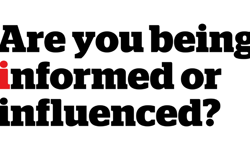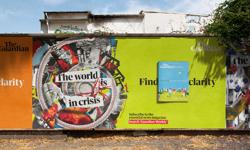
The campaign’s central message, ‘Hope is Power’, is inspired by the Guardian’s editor-in-chief Katharine Viner’s essay ‘A mission for journalism in a time of crisis’. The campaign seeks, says The Guardian, to build on the trust and affinity readers have with the Guardian and its role in giving people the facts to challenge the status quo, publish fresh ideas and opinions, and hold power to account.
Anna Bateson, chief customer officer, Guardian News & Media, said: “The Guardian has an almost 200-year history of producing journalism which inspires hope. This new campaign aims to turn that feeling into action.
“Against the backdrop of a volatile political landscape around the world and with a frugal budget, we have chosen to take a bold creative approach which we hope will inspire readers to support Guardian journalism in a number of ways.”
The new campaign aims to deepen affinity among existing Guardian supporters, while also encouraging new readers to spend more time with Guardian journalism. The campaign is one part of the Guardian’s target of reaching 2 million paying supporters by 2022.
The creative will run for five weeks across television, video-on-demand, cinema, outdoor, social, audio and the Guardian’s own channels in the UK, US, Australia and globally. It relies on carefully targeted use of the Guardian’s platforms, contra agreements and an effective media plan including the use of flyposting and targeted podcast ads, says The Guardian.
The campaign film is directed by Academy Award-winning director James Marsh, known for his Stephen Hawking biopic, The Theory of Everything. It is set to music from the Tony award-winning musical ‘Hadestown’, the track ‘Nothing Changes’ is written by Anaïs Mitchell.
The Hope Is Power campaign is a collaboration between the Guardian’s brand, marketing and editorial teams. Uncommon London led on creative development, PHD led on media planning and buying, and Pentagram developed the initial brand positioning.










